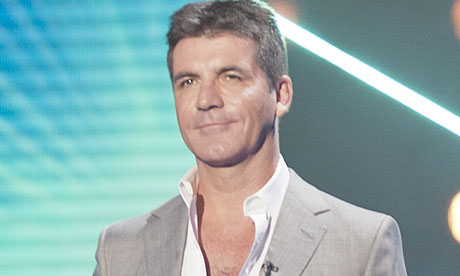
Wayne Rooney's hair transplant. Simon Cowell's Botox. Simon Cowell's, er, moobs.
With news of male celebrity makeovers making headlines this week it seems men have never been required to be so well groomed. But the trend is not exclusive to the world of celebrity, with some warning that the growing need for males to make themselves beautiful is leading to the "increased objectification of men".
"There has been a rise in the pressure for men to look good," said Glenn Sacks, a columnist on mens' issues based in the US. "Man's role has evolved. Fifty years ago the average man in England or in America was working class. The work was often dirty, grimy, hard. There was the image of a strong man who did what he had to support his family.
"Now, there's less physical labour. It's more office based. There's more expectation to look good."
Gone are the days when male grooming products constituted a razor and a toothbrush, and treatments for baldness have come a long way since Sir Bobby Charlton painstakingly arranged his combover. Rooney proudly displayed the results of his hair transplant on Twitter last week, sparking a "huge increase" in enquiries, according to one practitioner.
"Our phone hasn't really stopped ringing," said David Cuddis, director of The Hair Clinic, in central London. "I'm sure the whole profession is very busy at the moment."
Rooney is not the first man in the public eye to seek to combat his thinning locks. James Nesbitt underwent the procedure last year, while Duncan Bannatyne has also benefited from a thicker thatch.
Cuddis agreed there is more pressure on men to look good. "It's being thrown at you in the magazines, in the newspapers, all the time," he said. "Image is everything nowadays. Youth is the thing. The majority of politicians are in their 40s. If somebody's in their 20s and they start to lose their hair, it's a big worry for them."
But the feminist writer Julie Bindel said while men may be scrubbing themselves up more than in the past, they would never face the same pressure as women to look after their appearance. "Men ultimately can flirt with it," she said. "Women live by it. They're judged by it."
Dan Holliday, director of creative agency Not Actual Size says there are two reasons why men are bucking up their ideas: money and sex. "As the workplace has become more competitive, people are more savvy and less squeamish about the impact their looks can have on their earnings and welfare," he said.
He added that higher divorce rates also played a part: "It means more men over a certain age out in the dating circuit. You need only go out in a British city centre to see the evidence of that."
Sacks, however, added a third reason for the increased attention paid to men's looks – the increasing equality of women in the workplace. "Women's status in society has risen, they're more and more independent, they're earning their own living more and more," he said. "Women look for things other than a provider – they look for physical attractiveness, and that does lead to the increased objectification of men."Bindel disagreed, however, saying it "doesn't ultimately matter" how men look. "Bob Hoskins manages to be viewed as sexy and attractive, and it's not just his wealth and social status.
"If you think about a physical female equivalent to him, you're probably talking about someone like Ann Widdecombe. Would anyone ever think: 'Hmm, she's sexy in a quirky kind of way?'" "That tells us about how women's currency is valued by appearance, and it runs through pretty much everything to do with women's status – and it really, really doesn't with men."

